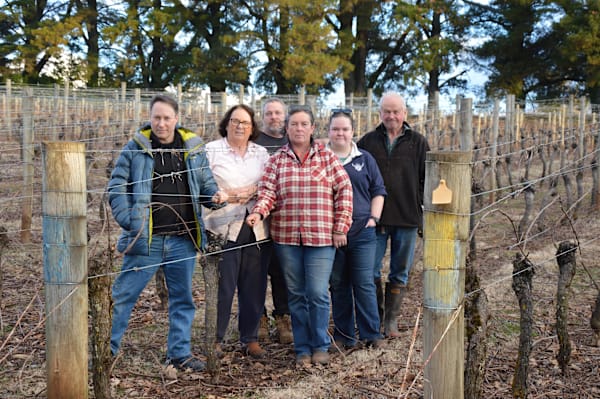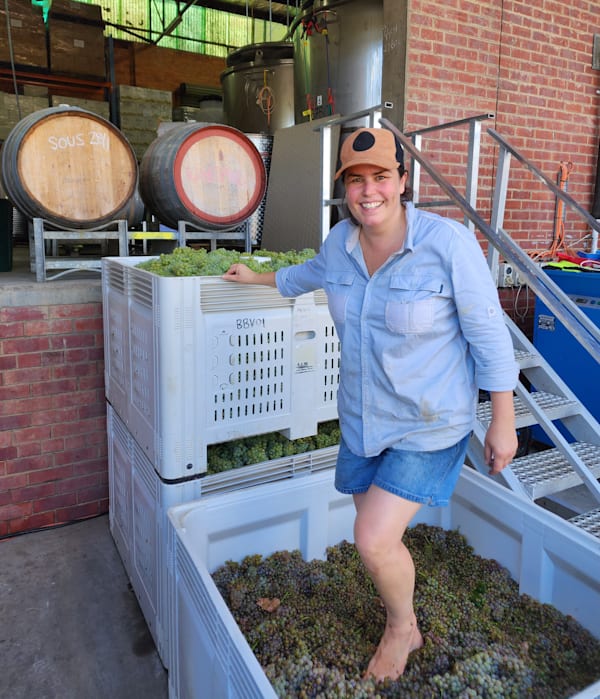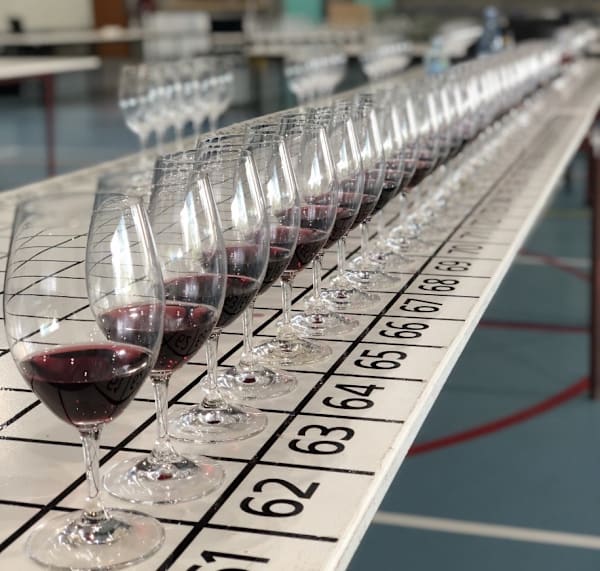Local vignerons gathered to share their experiences and thoughts on the future of the grape growing in their region during a series of workshops last month
Hosted by North East Wine Zone (NEWZ), a group which formed in the aftermath of the 2019/2020 bushfires, the events held in the King Valley, Alpine Valley and Beechworth were also one of the first opportunities to come together and network since COVID erupted.
The NEWZ, which is chaired by Indigo Vineyard's Rob Hawkings, includes Rutherglen, King Valley, Beechworth, Alpine Valley and Glenrowan as members, and was established to support grape growers in the region with funding from the Federal Government.
Those assembled heard from guest speakers including viticulturist and valuer, Ben Rose on vineyards of the future and critical planning, director of the Australian Resilience Centre Paul Ryan on risk, resilience and dealing with extreme weather events, and professor Snow Barlow on climate science.
North East Catchment Management Authority event facilitator Lachlan Campbell said around 65 people attended the three events which concentrated more on viticulture than on winemaking.
Latest Stories
He said attendees enjoyed the opportunity to catch up with neighbours and colleagues while also appreciating the chance to learn from experts in their fields.
"There hasn't been a lot done to support grape growers in the region, with winemakers tending to get most of the attention (until now)," he said.
"The growers don't get much chance to compare and contrast how things are going in their respective vineyards to and discuss new developments."
Mr Campbell said the 2019/20 summer bushfires were disastrous for growers, most losing their crops due to fire or the impact of smoke – the local wine industry estimated to have suffered more than $140 million in losses.
He said hospitality and other local industries aligned with the wine industry were also severely impacted, only to then face further setbacks due to COVID.
"The topic around vineyards of the future was to look at what is happening now, in the future and what can we do to meet the challenges of the future," he said.
Mr Campbell said the wine industry was "like the canary in the coal mine" when it came to climate change, with issues including early harvests (estimated to be a day earlier each year), higher alcohol content in fruit, and wineries not able to cope with the increasing concentration of the harvest.
He said there were also extreme weather events such as heavy rainfall, droughts and bushfires becoming more prevalent.
Another pressing concern was the current labour shortage – impacting the entire agricultural sector – with hand–picking required by many vineyards and harvest only a couple of months away.
"The wine industry is definitely feeling the pinch – made harder with a lack of accommodation for labour, as it is for those in hospitality," he said.
"A grower may need to consider looking down the avenue of robotics or automation, or what different products may be available to protect vineyards in the future."
Discussion also covered the ever–changing fashions in varietals and also the suitability of particular grape varieties grown in the regions.
Mr Campbell said the north east region actually looking relatively sustainable considering the current wine 'glut' created after China imposed tariffs on Australian wine imports.
He said more traditional reds like Shiraz, Cabernet Sauvignon and Merlot – much of which is grown in South Australia and had been exported to China – were being replaced here by Italian and Spanish varieties, as well as a trend toward Pinot Noir.
"Those sales are going well which is really exciting for the valleys," he said.
"That is where the opportunity is – because those varieties are well suited for the climate and not so connected to the problem (of being unable to export to China).
"There is a lot of grafting going on, while others are trying more interesting Italian, French and Spanish varieties for table wine."
Dealing with limited water resources, increasing temperatures and exploring solutions – such as using protectant clays in the vineyard and labour saving devices – were all topics discussed.
Mr Campbell said while there was considerable work taking place around the world on dealing with the impact of bushfire smoke, there were still no single, scientific solution to the issue.
"The thought is that someone will come up with something, but it hasn't happened yet," he said.
The North East Wine Zone working group is currently involved in a smoke taint detecting sensor project, where 100 sensors are being placed across the North East region from King Valley to Rutherglen with the aim of collecting data for easy download and analysis.
Mr Campbell said while those attending were generally positive about the future, succession was taking place in some family businesses, concerns remained about the situation with China and also what the European Union may require in the future in regards to carbon accounting standards.
But he said they also expressed their pride in their individual regions – and the strength of local tourism in those regions helped to counter some of those concerns.
Two new workshops are being developed by the NEWZ with plans to hold them in each location after vintage in 2022.
The Vineyards of the Future workshop will be held for local grape growers in the Rutherglen region on January 21 at Tuileries of Rutherglen.
To register visit Eventbrite or email northeastwinezone@gmail.com.














